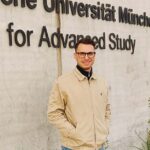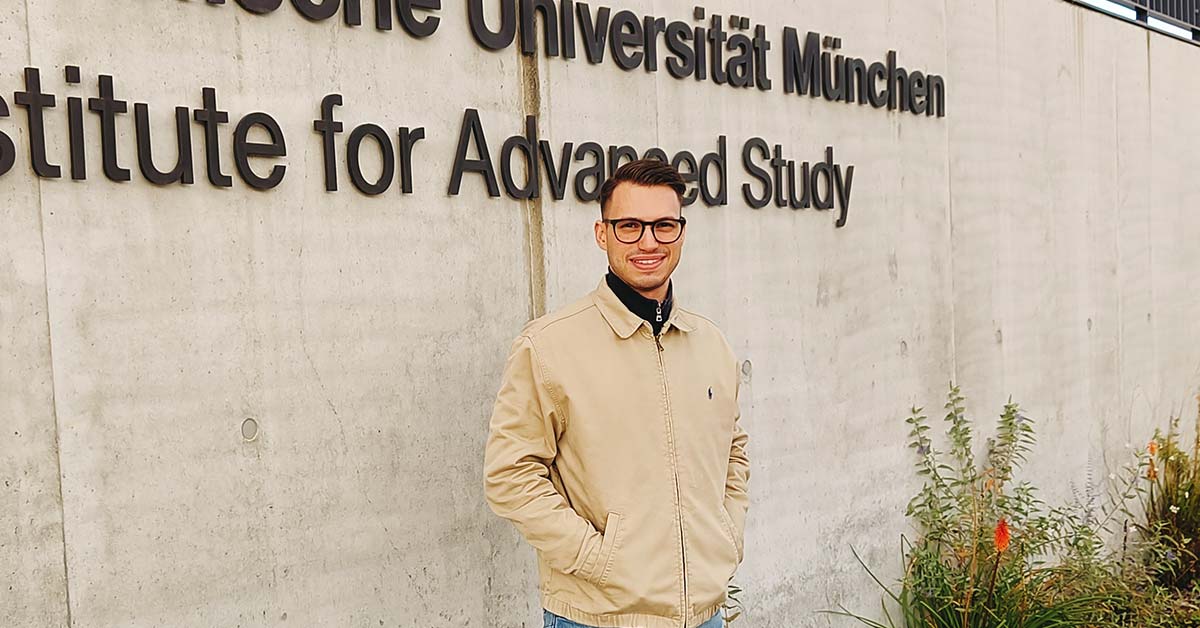“My biggest personal learning was the change of perspectives” – Jonas Schönberger Jonas is currently getting a Master’s in Management & Innovation (Class of 2023). He splits his time between school and work: Jonas has landed a student job at…
“My biggest personal learning was the change of perspectives” – Jonas Schönberger
Jonas is currently getting a Master’s in Management & Innovation (Class of 2023). He splits his time between school and work: Jonas has landed a student job at Horváth, a renowned management consultancy. His work at Horváth’s Strategic Business Transformation Department involves business development, sales, and pricing excellence for industrial goods and high-tech industries.
Which goal did you want to accomplish when you entered the Master’s program?
First and foremost, I wanted to grow personally and develop the skillset and capabilities that are needed to become a responsible leader. My goal is to empower and support international teams in developing efficient and sustainable solutions, create added value, and drive innovation. In my former role as an “Idea and Innovation Manager” at Lidl International, I got to experience first-hand how new and innovative technologies are getting more and more complex. Apart from increasingly complex technologies, we also face challenges such as disrupted supply chains, increased and volatile prices, or rising factor costs – to name just a few of these global uncertainties.
On top of that, I think there is a gap between management and new innovative technologies and their convergence. I’m convinced that companies have a fair chance to overcome these challenges and to create lasting and sustainable wealth in the future if they develop a common understanding of managerial and technological aspects. The Master’s program in Management & Innovation is a great opportunity to develop these skills – and to pursue relevant research to advance innovation-based businesses and societies.
What’s the most important piece of knowledge or skill that you’ve acquired during the program?
Besides expanding my general economic and business knowledge, I got to refine my expertise in analytical management tools, theories, and methods for dealing with innovations – from development and prototyping to their launch and commercialization on the market. I think this really matters because the digital transformation of business models, products, and services continues to be one of the top challenges. When it comes to introducing new digital products, companies struggle to determine a proper go-to-market strategy for these new types of products.
And yet, my biggest personal learning was the change of perspectives. The program allowed me to work not only with SMEs and MNEs, but also with founders and startups. Coming from a purely corporate-coined business environment, getting to know the startup world and the entrepreneurial founding spirit helped me to understand how new ideas are developed. It also enhanced my understanding of how concepts are taken to the next level by focusing on the problem and thinking through the lens of the customer.
What are the biggest advantages of a full-time program at TUM Campus Heilbronn?
The Heilbronn campus offers a great ecosystem: on the one hand, there are multiple academic and research institutions besides TUM, such as the DHBW (Baden-Wuerttemberg Cooperative State University), Hochschule Heilbronn (Heilbronn University of Applied Sciences), the Fraunhofer Institute, or the Ferdinand-Steinbeis-Institut. Heilbronn is also home to the Academy for Innovative Education and Management (aim), where you can learn a foreign language or do the 42 programming school. On top of that, “Campus Founders” are forging and developing the next generation of entrepreneurs and startups.
On the other hand, the Heilbronn and Hohenlohe area has a high density of huge corporations such as the Schwarz Group (Lidl and Kaufland), the Würth Group, or SAP. These companies are usually open for collaborations and offer a range of versatile and interesting projects, often within an international context. The area also boasts a lot of smaller firms and world market leaders (the so-called “hidden champions”) that offer state-of-the-art technologies.
There’s an ongoing exchange of ideas between schools and businesses, which results in a network that’s one-of-a-kind. When you do a full-time program in such an environment, you’ll be able to really tap into all these resources to increase your learning experience and get ready for a career either in academia or the business world.
How did the close cooperation with companies benefit your studies and learning success?
I’m convinced that a close cooperation between academia and the business world leads to the best output. When you have the chance to apply your theoretical knowledge in a business environment, you get to see where it is complementary and where the complexity of problems goes beyond what your textbooks taught you. When you return to the classroom, you’re able to challenge some of these theories.
Bringing together theoretical and practical knowledge helped me become a problem-solver for complex economic and business issues. Working on different real-world problems with several companies allowed me to learn how to develop and integrate solutions to business problems. By doing so, I’m taking responsibility and can be held accountable for my actions – and this is the core of being a responsible leader: whenever you’re making decisions, you need to consider integrity, ethics, and socio-cultural factors. This way, I could expand my cultural awareness and sensitivity when contributing to the development of business strategies and models.
All in all, the program helped me sharpen my skills and apply them in new fields – and I think that I’m well prepared to tackle any challenges and obstacles in my future career.

